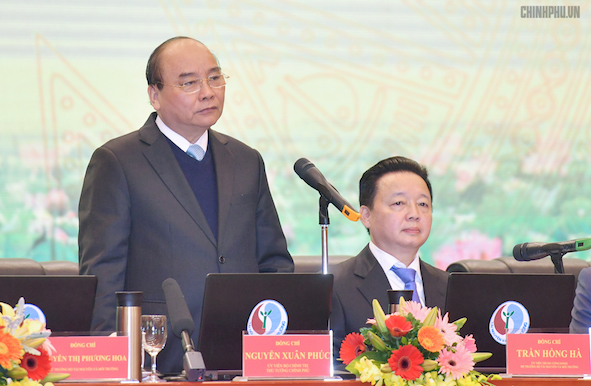On the afternoon of December 1, in Hanoi, the Young Parliament Simulation Forum (VNYP) held a seminar on "Proposing a Carbon Tax to implement Vietnam's commitment to reducing CO2 emissions under the Paris Agreement on climate change." climate”, with the expectation of reducing CO2 emissions into the environment, contributing to the implementation of 17 sustainable development goals of the United Nations of which Vietnam has been and is a member. most positive.

Illustration: Internet
VNYP is an educational project co-organized by VNYP group and Hanoi Law University with the aim of raising awareness, role and capacity of the young Vietnamese generation in the policy making process. In 2018, Vietnam surpassed more than 1,300 applications from 150 countries to become the only representative to receive funding from the Alumni Engagement Innovation Fund (AEIF) Competition of the US Department of State.
At the seminar, the VNYP team said that in order to achieve the committed target of reducing greenhouse gas emissions by 8% compared to the normal development scenario, it can be reduced to 25% if it receives international support under the Paris Agreement. Regarding climate change, Vietnam needs to make practical preparations and actions to ensure the finish line on time.
Associate Professor Dr. Le Van Hung, Hanoi University of Natural Resources and Environment, said that environmental pollution and climate change have been causing negative impacts on human life. According to calculations by the Ministry of Natural Resources and Environment, by 2100, if the sea level rises by 1m, the Mekong Delta and Ho Chi Minh City will lose 7.6 million tons of rice, equivalent to a quarter of the total production. region. That fact once again sets off alarm bells as climate change is getting worse and worse, so action is needed to really change this situation day by day. Among environmental protection taxes, the CO2 tax is used relatively commonly. This is a tax charged on the amount of CO2 of nature - one of the agents that warm the earth and affect climate change.
Subjects subject to CO2 tax are mainly fossil fuels such as gasoline, methanol, butane, liquefied petroleum gas, peat, coal. The tax base is CO2 emissions in tons of emissions. The CO2 tax rate can be determined relative to a percentage or an absolute or mixed tax rate.
According to Dr. Nguyen Van Phuong, Head of the Department of Environmental Law, Hanoi Law University, in order to reduce C02 emissions, the Ministry of Natural Resources and Environment has also issued Circular 24/2017 (Circular on technical regulations). environmental monitoring) for businesses but still need to propagate awareness to the community, because taxing environmental protection, specifically the Carbon tax, is using economic tools, affecting prices on two objects. are manufacturers and enterprises. But the environmental protection tax cannot affect the behavior of monopolies and consumers, because they have other substitutes.
Therefore, in order to mitigate climate change, Vietnam needs to apply tax incentives to businesses and individuals engaged in scientific and technological activities to research and develop, create environmentally friendly products, and reduce costs. reduce CO2 emissions. In addition, Vietnam needs a green credit policy from the state and state financial funds are also used by many developing countries, in order to provide credit with preferential interest rates for researchers, products and services. manufactures pollution control equipment and organizations and enterprises engaged in green production.
Environmental News – Dieu Thuy



















